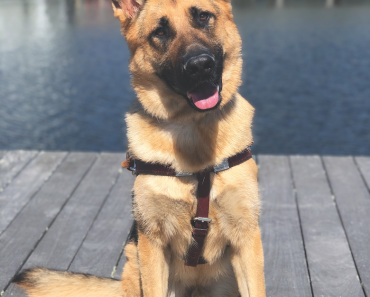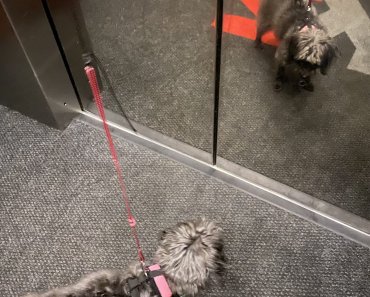All of us dream of parenting the perfect dog, a pup that is a CGC or canine good citizen and is well behaved and dependable at all times. Well dreams do come true if the training is done with care and dedication. Remember pups learn from day one and need to be taught what is right, what is wrong, and proper socialization.
Pups are like children, they need constant supervision and training. Training a pup need not be an ordeal all you need to keep in mind are a few simple rules:
Until your pup learns you need to keep an eye on him at all times. When you cannot then you must crate him. Create a schedule for the pup this will help the pup settle down quickly. The schedule must include things like hourly bath rooming visits, eating times, rest periods, walks, play time, training, and so on. A pup that has a busy day has no time to be bored and get into mischief.
Teach the pup to respect you. Dogs live in packs and instinctively follow a leader. If you establish your leadership in no uncertain terms then training will become easy as the pup will obey you at all times and not challenge your authority.
Use only positive training methods. Never shout at, hit, or punish a dog. It is not just cruel but can lead to behavioral problems. Use of electric shocks, prong collars, sprays, and so on could hurt the animal.
Teach the pup nothing in life is free. This is a system that is widely acknowledged as a useful training tool. If you practice this, the pup will learn that to get something like love, a walk, or treat, he must behave well.
Teach the meaning of No, from day one. Do not encourage behaviors like jumping, mouthing, tug-o-war, barking, or running out of open gates and doors. Praise good behavior and ignore or walk away when there is bad behavior. The pup will learn that if he misbehaves he will loose his companion/playmate.
To correct a behavior you must catch the pup in the act and startle him by rattling a can of pebbles. Once you have done this make him correct his behavior and immediately offer him a treat and praise. Pups do not recall what happened earlier so scolding him after an event is of no use.
Always call/use his name positively. Never say Bad TOM, or No Tom, this will cause confusion and the pup will think that if you call his name then it is something bad. The pup must associate his name with happy events like hugs, petting, walks, treats, and such. If this happens he will come willingly when you call out his name.
Create a training schedule that is short and sweet say 10 minutes thrice a day. Long repetitive lessons can be boring and the pup will loose interest in learning. Make learning fun and use trick training to teach commands like sit, down, come and so on.
Bond with the pup and both of you will enjoy your lessons. The pup must look forward to spending time with you and not avoid you by running away or hiding. Be sure to socialize the pup early. Socialization is one of the most important lessons. The pup must learn to be around other animals, people, sounds, vehicles, and other activities. So, slowly introduce the pup when he is little to everyday activities and sounds. Take him to the mall/ park, introduce him to children and other pets, and make him unafraid of the vacuum and garden hose.
Learn all about crate training, leash walking, house breaking, as well as food training. These are kindergarten lessons that every pup must master. Know about all the idiosyncrasies as well as peculiarities of the breed this will give you valuable insights on how to successfully train the pup.
As a pet-parent you have many choices. You could choose to train the dog yourself or register at a professional training school. Training a dog has many stages: kindergarten, obedience training, doggy sports, showing and conformation, as well as other aspects like therapy dogs, hearing dogs, and so on. What level you choose to train depends on you as well as the learning abilities of your dog. As you know, different dogs like humans have varied talents. Choose well and both you and your pup will have fun times together.


























